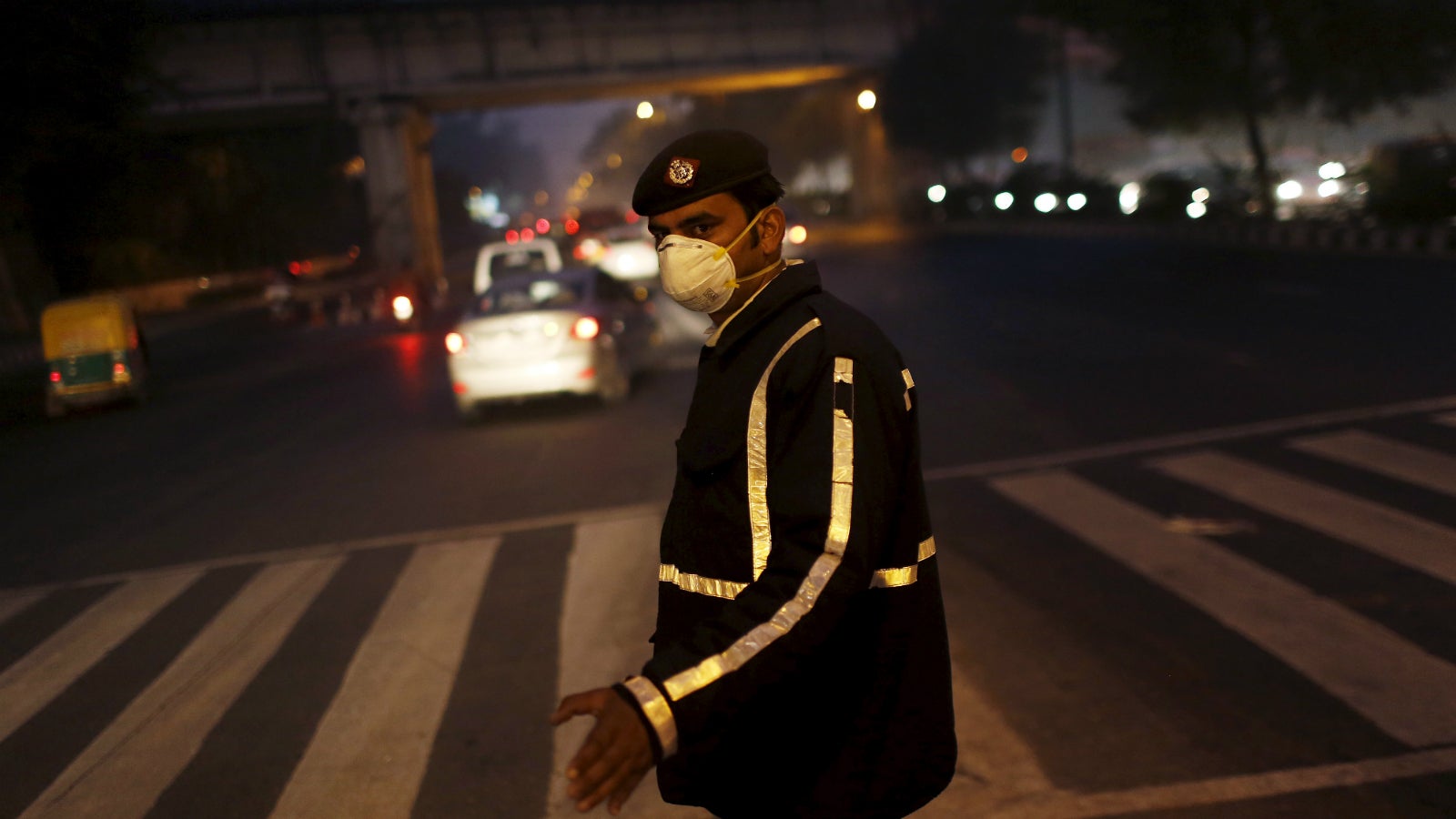A Canadian startup wants to sell cans of fresh air to gasping Indians
Vitality Air—a Canadian startup founded by a former mortgage broker—made headlines last year for selling bottled air to Chinese struggling with poor air quality.


Vitality Air—a Canadian startup founded by a former mortgage broker—made headlines last year for selling bottled air to Chinese struggling with poor air quality.
But the company reckons it can sell even more to gasping Indians. ”We expect India to be even bigger than China,” Moses Lam, founder of Vitality Air, said. “We are test-marketing it right now.”
So, 150 sample cans of fresh air arrived in India’s capital, New Delhi, last week. These will be shipped and sold in the Delhi National Capital Region, Bengaluru, Kolkata, and Mumbai. At about Rs2,000 for eight litres, or Rs12.5 per shot of air, a bottle can provide up to 160 such shots or breaths.
Founded in 2014, Vitality Air began selling air—sucked, compressed, and canned from the upper reaches of the Banff National Park in Alberta, Canada, and its neighbouring Lake Louise—in China last year. On its website, the company claims to sell two variants: fresh, clean, portable canned air and recreational oxygen.
Distributor queries from India began trickling in after news broke about the company’s China venture, Lam said.
Households in China have been dealing with dangerous levels of air quality, especially in cities like Beijing that saw a three-day shut down last December amid alarming levels of smog. With cans priced between $14 and $20, Vitality Air is in high demand—1,000 bottles of fresh air have been pre-ordered already in that country.
With pollution levels reaching all-time highs in India, Lam is looking to replicate his Chinese success in Asia’s third-largest economy. Air in New Delhi, the world’s most polluted city, contains alarming levels of particulate matter 10 and PM 2.5 that cause smog and lead to respiratory diseases. The city—home to over 8.8 million vehicles and with large industrial zones located nearby—is struggling to reduce pollution.
“The fact that we need to bottle our air and breathe it, just shows how poor the air quality is,” said Chandra Bhushan, deputy director general, Centre for Science and Environment (CSE), a research and advocacy firm in New Delhi.
Lam, however, reasons that his canned air is equivalent to bottled water, which, although “available, isn’t always clean.”